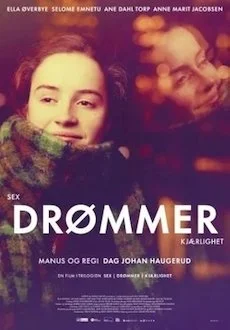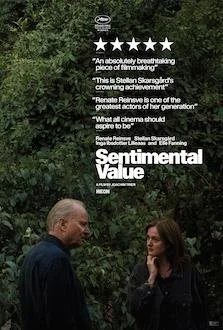Directed by Roar Uthaug
Country: Norway
This fiction about a Norwegian family trying to survive a destructive 300-foot tsunami caused by the collapse of a bulky mountain fragment into a fjord, provides us with one or two unsettling moments but never breathes the indispensable fresh air to avoid being considered a standard.
Standing slightly above the most Hollywood productions of the same genre, “The Wave” deserves merit whenever renders claustrophobic atmospheres, but it’s not so strong when it comes to the drama itself, which proved slick and too familiar.
Roar Uthaug (“Cold Prey”, “Escape”), directing from a script by John Kare Raake and Harald Rosenlow-Eeg ("Hawaii, Oslo"), explores a real possibility - there’s currently 30 unstable mountains in Norway - and gives wings to his imagination. However, by observing the modesty of the visuals and how a few clichéd details sabotage the story, I can say he consciously misses the opportunity of having his name dissociated of the commercial circuit. That fact is perhaps insignificant to the filmmaker since the film is an impressive n.º 1 national top box office since August 2015.
The film opens with footage about the Lodal catastrophes of 1905 and 1936 that together victimized more than 100 people. Immediately, the attention is shifted to Kristian (Kristoffer Joner), a competent geologist, working in the quiet tourist village of Geiranger, who is about to move with his family to Stavenger, the third largest urban zone and metropolitan area in Norway.
In his last working day at the monitoring center, where they probe the actual movement of the mountains, he’s praised by his chief, Arvid (Fridtjov Saheim), and cherished by his workmates. While he nostalgically packs his stuff from the desk, some values read by the sensors show that the Akerneset Mountain may not be so still as they would like to believe. Kristian shows his utmost concern about the matter, but Arvid, who refuses to press the alarm button, considers this an overreaction and concludes that the situation is under control.
Kristian leaves the place with a disquieting sensation to meet with his plucky wife, Idun (Ane Dahl Torp), and their two children, Julia (Edith Haagenrud-Sande) and Sondre (Jonas Hoff Oftebro), at the hotel where she works. At the last minute, plans change and the couple decides to spend their last night there. Scarily, the night becomes an ordeal because Julia makes his dad taking her to their old house to say goodbye, exactly when, some time later, it’s confirmed that a massive landslide fell in the fjord, giving the inhabitants only 10 minutes to go up 80 meters above the sea level and avoid the damaging impact of a gigantic wave. To worsen the situation, Sondre resolves to vanish from his hotel room, dragging his mother into a desperate search that makes them to miss the bus to salvation.
Playing with the separation of the family, the film feels like a copy-paste of stereotypes, relying not only on some noble actions of aid and generosity, but also on afflictive instants of panic caused by being trapped in confined places, in the eminence of drowning.
“The Wave”, bolstered with consistent performances, an intimidating musical score, and a heart-rending scheme may allure viewers agog with the power of a natural calamity over a tiny village. Nevertheless, the acceptable moments of tension never surpass the real lack of surprise and originality.









































